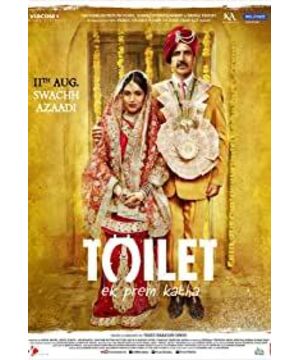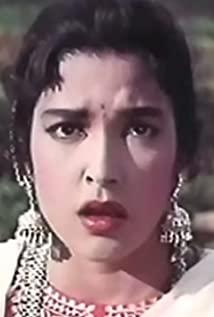[Necessary foreshadowing] This Chinese translation is simple and accurate. In a love movie, why is the place used for the reincarnation of the five grains to be a key word in the title? But in magical India, it's a true story. In India, the power of religion is too powerful. I believe that after reading Aamir Khan's "Oddly God", you will definitely feel it. It penetrates and directly affects every aspect of worldly life. One of the most memorable moments is that the drunken alien took a stone with a spire, stood at the entrance of the university, and painted it red with grass blades. Then, while watching the upcoming spectacle: people who pass by and find the stone will kowtow and bow down, and the most devout will throw their bodies to the ground; of course, they will open their wallets and give some financial assistance to the god who is hiding in the stone. In this film, the male protagonist Keshav—because, according to his father, the horoscope of his birth and the celestial movements of the universe are not in harmony, and can only marry a buffalo—unless he finds that his left hand has two thumbs Only people who are only able to break the spell of fate and step into the siege of marriage. At his wedding with Buffalo Marika, in addition to the protagonist's depressed mood and loss of expression, the relatives and friends onlookers warmly congratulated and applauded. Next, is the basic routine of love movies. I met the heroine by chance, fell in love at first sight, didn't know each other, met again, stalked and fought, repeated the mountains and rivers several times, overcame obstacles, and the willows are bright. When Keshav, who has been single for 36 years, tied the knot and fell apart, the film took 51 minutes. And Paradox just got out of bed, ready to show its energy for the remaining hour and forty minutes. [Appearance of Contradictions] The 51st minute of the movie is the first morning of the newlyweds, at 4:15. The window of the new house was knocked, and the confused bride Jaye saw people from the Women's Federation coming to her. These married women in sari, carrying lanterns and water jugs, made a collective appointment to go to the wild for convenience. The film shows this process in great detail, and it takes a long country road to find a place shaded by grass and trees to carry out this basic innate human right. In the meantime, watch out for the malice of the wretched male citizens of this disproportionately populated country. They are always in front of those shady jungles with lights and cameras on. This shames Jaya, who has been sitting on the toilet since he was a child and studied in Japan. Keshav's determination to satisfy his wife's wishes is shown quite interestingly in the movie, and it's not until a toilet is actually built and demolished that the couple decides to divorce that we find out just how much people like to poop in the wild in India. Husband said: I gave her open fields, jungle and bushes, but she insisted Want a 4×8 toilet... An elder sister said: I feel embarrassed. Give up all taboos and start doing business (here refers to open defecation)! Father-in-law said: Our daughter-in-law goes to the toilet at home, which is disrespectful to our cultural traditions and rituals. Overeducation makes your life fail! The grandma who came to the door said: I am a woman, so I compromise with the plight of women all the time, but she is married, so things are different. There has never been such a thing in our village (referring to the divorce because of the toilet)... A male villager said: If we build a bathroom in our own home, wouldn't our home be dirty and what should we do about the smell? Are we sick? [Struggle with Culture] Among these opposing voices, the views of the village chief who are familiar with and can quote the scriptures are the most refreshing. Regarding the construction of toilets proposed by Keshav, he frequently recites golden sentences and quips: Even if You build toilets for women and people don't forget their values and stop going to the fields to poop. You leave this stupid bondage at home. We were freed from British rule, do you want us to be slaves to foreign cultures? This is a village of generations, our ancestors never built toilets at home, and we are not gods. You don't try to challenge our culture. In an ancient country with a long history, great power can be diffracted and even distorted through some interpretations in cultural traditions and even classic documents. Lu Xun said that when you move a table in China, you will bleed. He always thinks that this is an exaggeration that is not surprising, but the big thing that happened for the small matter of hairstyle was really dramatic when the Ming and Qing dynasties and the Qing dynasties perished. When the Qing Dynasty entered the customs, in order to express its political and cultural conquest of the Central Plains, the citizens were required to have a rather "killing Matt" hairstyle, which led to fierce resistance; after the Revolution of 1911, cutting braids became progressive again. logo. In this regard, Lu Xun has a very interesting description: "Our very ancient people seem to take hair lightly. According to the criminal law, the most important thing is naturally the head, so Dabi is the punishment; the second is the genitals. , so palace torture and claustrophobia are also scary punishments; as for Kun, it is very small, but if you think about it, I don’t know how many people have been trampled by society for their entire lives because of their bare scalps. “When we talk about revolution, Talking about the three days of Yangzhou and the massacre of Jiading is actually just a means; to be honest: the resistance of the Chinese at that time was not because of the subjugation of the country, but because of dragging pigtails. "The stubborn people have been killed, the old people have died, the braids have long been kept, and Hong Yang has started to make trouble again. My grandmother once told me that it was difficult to be a commoner at that time, so keep all of them. Those with hair are killed by officers and soldiers, and those with braids are killed by long hair! "I don't know how many Chinese people suffer, suffer, and perish just because of this innocuous hair." In India, especially in rural areas, the definition of "cleanness" does not come from the judgment of science and the most basic common sense of life. , but the judgment of God. Building toilets, then, is not a manifestation of civilization that solves an urgent domestic need, but a blatant challenge to tradition. In ancient countries, the struggle with culture is difficult. Because, when you raise the banner of traditional culture, all you have to do is make a gesture of amazement and surrender, and shout "ancestors are wise". From a logical point of view, "You pray to the Ganges, but you also wash your sins in the Ganges", "If shit and toilets are dirty, then why does God give us a stomach"; From a practical point of view, " If you don't build a toilet at home, it will turn the whole country into a big toilet." "Men can answer in their own backyard, but women have to control their impulses, wait for night to fall, and leave in the dark without making a sound" - these are naturally The useless, traditional culture's dog-skin plaster inspires more miraculously effective pride than penicillin. At the end of the film, the protagonist's struggle is won, and there are toilets in the village. The village chief can still quote from the scriptures, "The scriptures say that human beings should not be comfortable with the sun and the moon" - after the facts have been changed, as long as they are handled properly, they can still reflect a huge "cultural confidence". But, willingly or not, all countries on this planet have been caught up in the process of modernization, and India is no exception. Indian Prime Minister Narendra Modi announced the "Clean India Campaign" plan in late September 2014 and said: "By 2019, the 150th anniversary of Gandhi's birth, a clean India will be the best way we can pay tribute to him. Gandhi exhausted After promoting Indian independence all his life, it is up to us to make the effort to make our country clean." He said: "I call on everyone to spend at least 100 hours a year on cleaning, we can no longer tolerate India's mess." Even toilets It also implicates the dream of this ambitious South Asian subcontinent country, "India has the technology, the method, the only thing it lacks is the infrastructure... When we can't guarantee that everyone has a toilet, we can't Claiming to be the next superpower.” The establishment of toilets was also a fraught issue in China. In the summer of 1900, the Eight-Power Allied Forces entered the capital of the Celestial Empire and found themselves in a giant super toilet at the same time. The feces and urine are flowing, and the stench is overwhelming. Qi Rushan, a famous opera artist (the prototype of Qiu Rubai in the movie "Mei Lanfang"), lives in this magical place for many years. "In Peiping City,...the streets and roads are all as high as people, and the short ones are three or four feet high, and the sidewalks on both sides are also very wide, but except for the small commercial stalls, the rest are places for toilet and toilet. , the streets are full of excrement and urine. When it rains, it is full of puddles.” Sai Jinhua, a famous prostitute, also said in an oral interview with Liu Bannong: “The streets of Beijing were too salty at that time, and the streets were full of excrement and urine. The foreigners are the most tired of this, so they gave an order to ask the residents to clean the section in front of the door. If there is a little dirt, they will be punished first and then punished. Although their method is too powerful, but the streets of Beijing However, it has been cleaned a lot. Later, the Queen Mother of the West came back to Beijing and saw that the streets were neater and cleaner than before. On October 10, 1916, the then President of the Republic of China Li Yuanhong decided to hold a military parade at the Nanyuan playground in Beijing. In the official document issued by the government at that time, there was such a "warm reminder": there is a toilet behind the dining shed, and one should not defecate at will. It can be known that defecation anywhere should be a common street landscape at that time. Another example. In the 1990s, in the county town of my hometown, I often encountered vehicles that scavenged and transported manure, enthusiastically filled with the heavy spirit of the dead after the grain was extracted. Even today, flush toilets finally fly into the homes of ordinary people. They are fully popularized in this famous historical and cultural city. The construction of public facilities is becoming more and more complete, and public toilets are widely distributed. However, under the background of street lights at night, you will still encounter some It is also common for people who "spread three feet in the wind" and "wet a shoe with their hands" if the mold star covers the top and steps on a fresh soft or old hard. Because, from the perspective of culture and tradition, according to the scientific arguments of many folks, "Asian squatting" is more in line with the natural dredging of the human body than sitting on the toilet. 【Awakening of Feminine Consciousness】 "Women are not born, they are made". From birth, women have lived in a context that has been "since ancient times". They must be weak, they must marry, they must not show their faces, they must obey the four virtues, and doing housework is a woman's work. Obviously, men want to let go. The golden rule made by self. Even in China in 2017, these ghosts of history are still coming back from the dead. There is a mysterious "Female Durban" in Fushun City, whose official name is "Fushun City Traditional Culture Education School". The contents of the propaganda include "Women ordering takeaways, if they don't wash the dishes, they don't obey women's morals", "Women should be at the bottom." ”, “If you don’t fight back, if you scold you, you don’t retaliate, you should accept the situation, and you will never leave”, etc.; there are also branches in Zhengzhou, Wenzhou, Sanya and other places. At the same time, the principal and teachers of the school were also invited to give lectures on traditional culture public welfare throughout the country. It can be seen that the braids on the head are easy to cut, and the braids in the heart are long and long. Indian actor Aamir Khan's two consecutive films released in China, "Wrestling, Dad" and "Singing, Mom", clearly presented the awakening and growth of Indian women under the oppression of culture and reality. In "Wrestling", child marriage is normal. The little girl in a beautiful traditional wedding dress said, "The daughter here is only born for housework. Once the girl reaches the age of 14, she will be married as a woman, and the parents will get rid of their daughters. Let her marry someone she has never met." In "Singing", abortion of female fetuses is commonplace, and the heroine Yin Xia knew that many years ago, when she was detected in her mother's womb as a girl, she faced Faced with the danger of being killed, it was her mother's brave and fearless struggle that brought her to the world. Then, the grief-stricken mystery superstar confronts Grandma why basic justice is not being served. The old man who was dying of age replied, "What can I do? I also blame my mother for giving birth to me! Look at what I have been like in my life." "They won't know, I'll leave. It's actually to come back. For those who I stay behind. For those who can't get out easily." Therefore, when those women who have been insulted and damaged win awards on the international stage or make a decision in the airport, it will become a major moment in the film, and it is a shock to reality as a means of dream-making, which is a backlog. Emotional release. In this film, the object of female consciousness awakening is a group. The first set of shots in the film is that they go to the fields in the early morning to "remove toxins and relax." In the chat of three women in a play, it can be said that they are happy. I have always doubted the meaning of Jaye's resistance, but it doesn't make any sense. One day, they were sitting under a tree doing farm work, talking about Jaye, and the eldest sister wearing a floral headscarf said that she was not used to the open air, what else could she do? ——The eldest sister wearing a white turban said, so, you can sit proudly on your toilet. ——The eldest sister in the green scarf said, what about us? For this movie, this is its momentous moment, and its significance is like the phrase "Prince and general, would you rather have a seed?" shouted by Chen Sheng from Daze Township, heralding their awakening and starting to fight for themselves in the family. Rights and interests and took to the streets to express this willingness, shouting the slogans of "No toilet, no wife", "If no toilet is built, we will divorce". In a word, this Indian film with the construction of the toilet as a clue has sweet and twisted love, and at the same time, there is the awakening and resistance of the common people. Reference article: Chen Xubin:
View more about Toilet: A Love Story reviews











